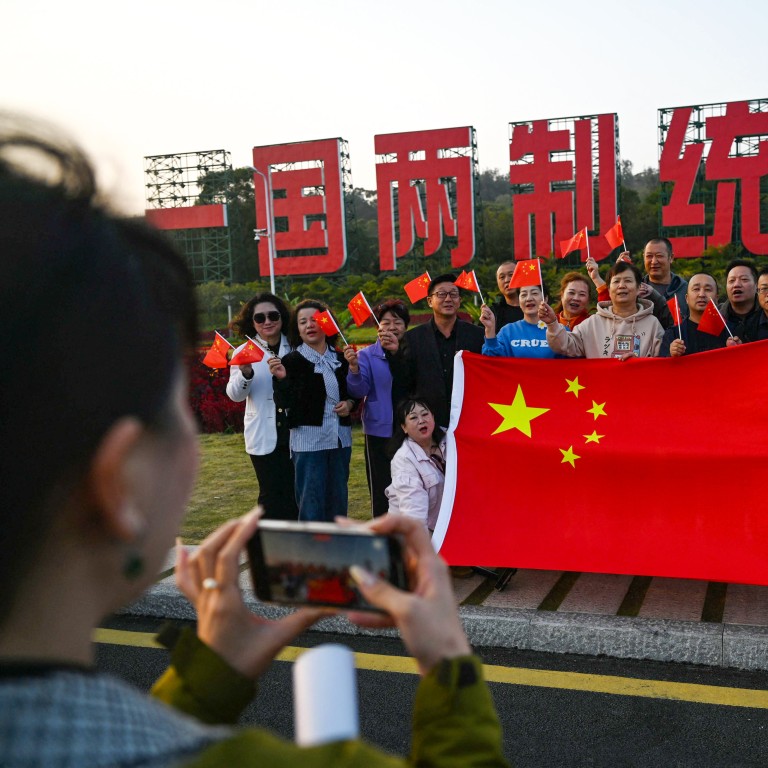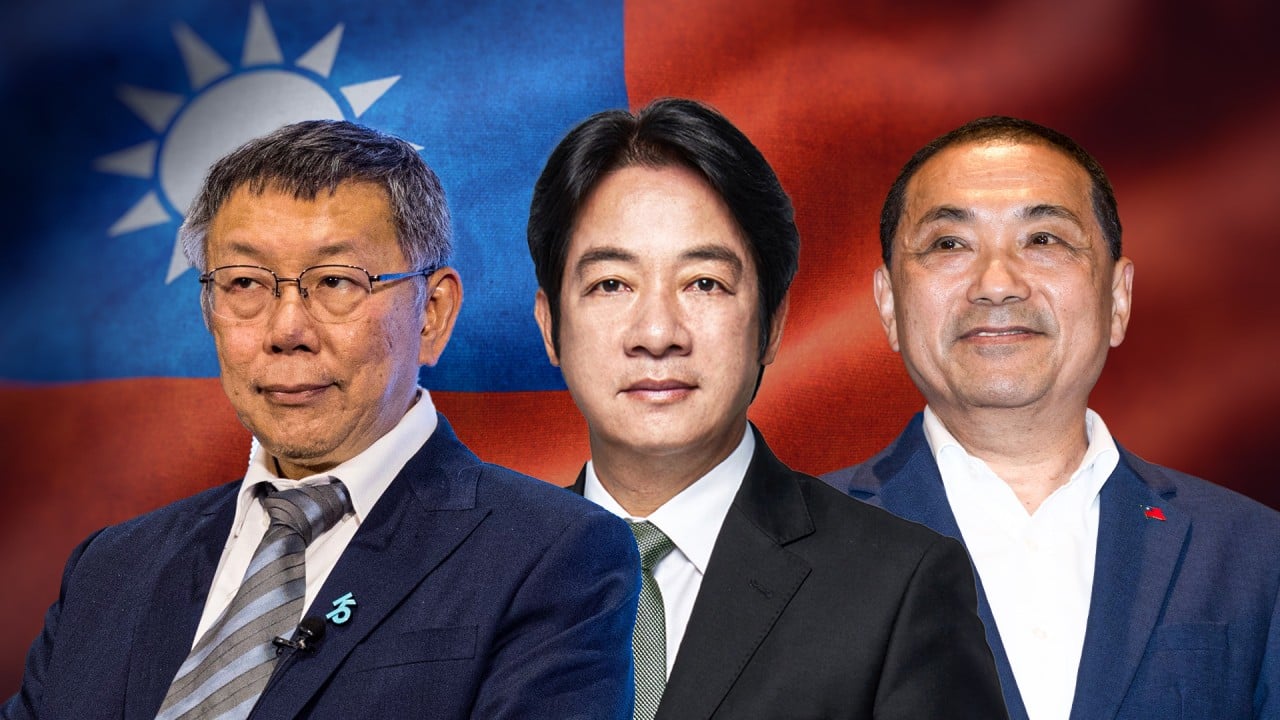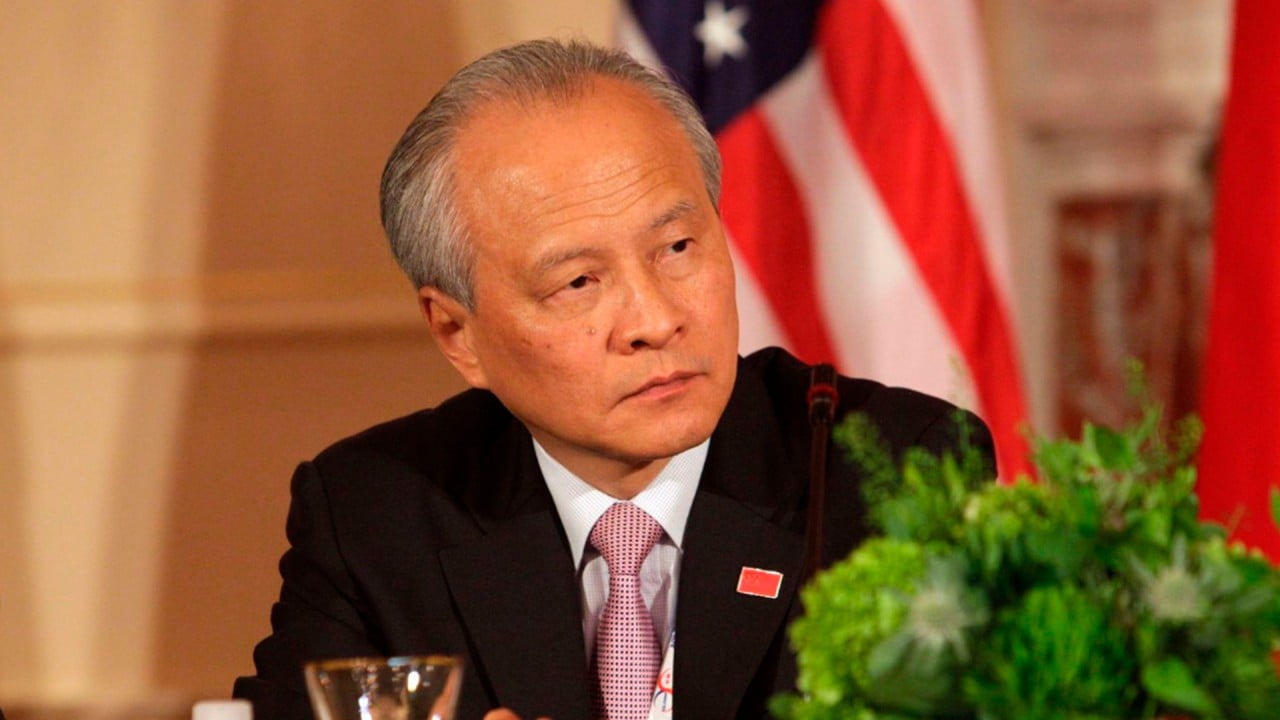
Washington watchful of ‘unpredictable’ Beijing response to Taiwan election
- US delegation will visit Taipei after Saturday’s poll to make clear to new administration what the one-China policy ‘is and is not’
- Official stresses that the United States has repeatedly communicated to Beijing that it is not taking sides
The official, who declined to be identified, added that the US will send an unofficial delegation to Taiwan shortly after the election. Beijing should not view this as anything out of the ordinary, given a host of past such visits involving former US officials, she said.
The senior administration official told reporters that Washington has communicated repeatedly to Beijing that it is not taking sides, does not have a preferred candidate and expects Beijing not to hinder Taiwan’s fourth transition involving democratically elected administrations since 1996.
“Beijing will be the provocateur should it choose to respond with additional military pressure or coercion,” she said. “It is no secret, I think, that Beijing has views on the outcome of the election and is trying to shape and coerce in various different ways.”
Taiwanese officials and analysts have accused mainland China of deploying a broad range of tools in recent weeks to pressure voters into supporting candidates who favour unification, including balloon flights over the island, stepped up fighter jet and maritime exercises in the area, as well as cyber influence campaigns.
Beijing, which sees Taiwan as part of China to be reunited by force if necessary, has responded that the island’s elections are an internal matter of no concern to outsiders. The US, like most countries, does not recognise Taiwan as an independent state but is opposed to any unilateral change to the status quo.
The Taiwanese election will see Lai Ching-te, the ruling Democratic Progressive Party (DPP) candidate, face off against Hou Yu-ih from the main opposition Kuomintang party, and Ko Wen-je from the Taiwan People’s Party.
Beijing is deeply distrustful of Lai and the DPP, which it views as separatists keen on formalising Taiwan independence.
The senior US official added on Wednesday that the US is prepared for various military and related contingencies. This is normal during periods of heightened tension, with options ranging from no response at Chinese provocation to “higher end” options, she said without elaborating.
The official also said that she hopes the election does not undercut the progress seen in easing US-China tensions since President Joe Biden and President Xi Jinping met in November in San Francisco.
“The health of the US-China relationship is not a derivative of cross-strait tensions,” she said. “Our expectation is not that China’s going to change its cross-strait policy. It’s how do we manage this difficult time and try to avoid unintended conflicts.”
The official declined to say who the US would send to Taiwan after the election as part of the high-level delegation, adding that its purpose was to make clear to the new administration what the one-China policy “is and what it is not” to foster cross-strait stability.
She also declined to say whether Washington would send a parallel delegation to Beijing, adding that the US would maintain open US-China diplomatic and military channels of communication throughout the election and transition period.
The Financial Times reported on Wednesday, citing sources, that the high-level delegation to self-governing Taiwan would include James Steinberg, a former Democratic deputy secretary of state, and Stephen Hadley, a former Republican national security adviser.
In recent days, Beijing has repeatedly made clear its concerns about and views on the election.
At the Defence Policy Coordination Talks in Washington on Monday and Tuesday – the first since 2021 – Chinese officials told their counterparts that the Asian giant would “never compromise” over Taiwan and urged the US to oppose its independence and stop providing arms to the island, according to a readout by China’s defence ministry.
And on a trip to the US this week, Liu Jianchao, head of the Chinese Communist Party’s diplomatic arm, said that Beijing’s position remains “strong” and “unchanged” in advance of the election.
“We take seriously the statements of the United States not supporting Taiwan independence,” he told the Council on Foreign Relations. “We hope that the US side will honour this commitment.”
In his annual New Year’s address, Xi characterised reunification as a “historical necessity”.
Adding to China’s displeasure in the lead-up to the election, US House Speaker Mike Johnson on Tuesday met Alexander Yui Tah-ray, the newly named head of the Taipei Economic and Cultural Representative Office in Washington.
China’s foreign ministry quickly responded. “China firmly opposes the US having any form of official contact with the Taiwan region,” spokeswoman Mao Ning told reporters in Beijing.
US lawmakers should “stop sending wrong signals to Taiwan independence separatist forces and must not intervene in the Taiwan region’s elections in any form”, she said.
Yui assumed his post as Taipei’s de facto ambassador to the US last month, replacing Hsiao Bi-khim who has joined Lai’s ticket as vice presidential candidate in Saturday’s elections.
The senior US official expressed hope on Wednesday that the decades-long uneasy status quo would be maintained.
“The United States and China of course have had differences on cross-strait issues but over the last 40 years, we have managed these differences,” she said.
“We do not support Taiwan independence. We support cross-strait dialogue, and we expect cross-strait differences to be resolved by peaceful means free from coercion.”



